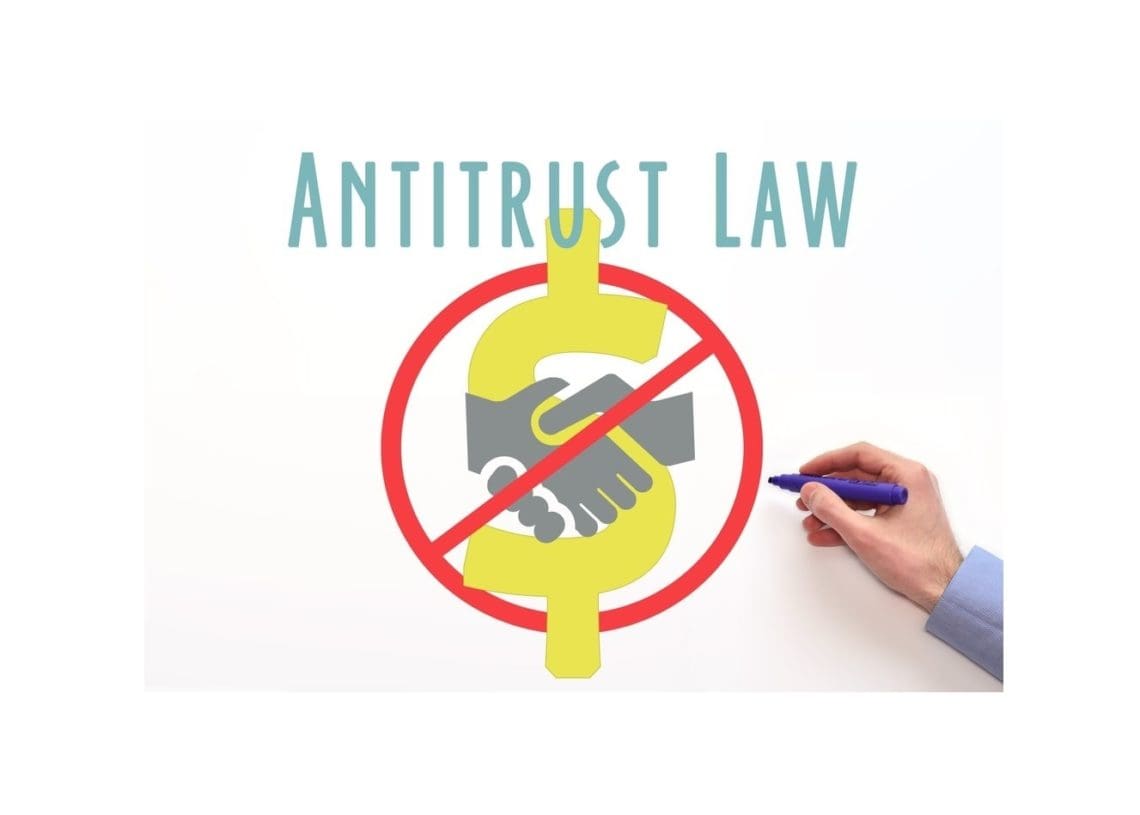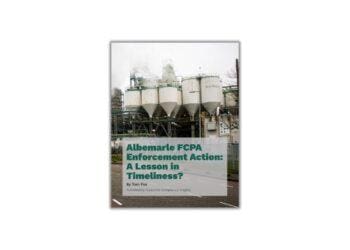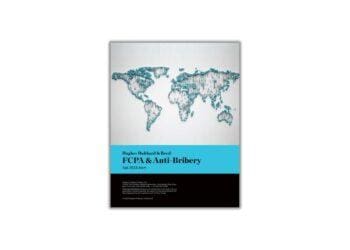Employers, staffers, and recruiters should be cautious of antitrust enforcement during COVID-19. The FTC and DOJ recently announced a concerted effort to find those who might engage in collusion or other anticompetitive conduct. Experts from Cozen O’Connor discuss how to comply with the latest guidelines.
COVID-19 has introduced unique circumstances, including around employment practices, that could raise issues under state or federal antitrust laws. Consider this scenario: You run a regional supermarket struggling to supply your community with food during the COVID-19 shutdown. One day, Bob Green, who runs a smaller, competing grocery nearby, gives you a call. After exchanging strategies for dealing with social distancing in narrow food aisles, Bob says, “We both have a lot on our plate right now keeping our employees working under these conditions. Until this pandemic is over, I don’t think it makes sense to make things harder for each other by hiring employees away from other stores. What do you think? You quickly reply, “I could not agree more. We will do the same. We all need to work together in this crisis.”
You might be surprised to learn that Mr. Green’s proposal and your agreement to it violates U.S. antitrust law. For a long time, few worried about the application of antitrust principles to most employment issues: Antitrust, it was presumed, was about price fixing and monopolies that harm buyers, not wages and human-resources concerns. However, over the past decade, the U.S. Department of Justice (DOJ), Federal Trade Commission (FTC) and state Attorneys General (AGs) have taken an increasingly tough stance against anticompetitive employment practices, such as the sharing of wage information and, as in the above hypothetical, negotiated hiring restrictions. While the precise application of antitrust law to employment issues is still being mapped out – particularly in special cases, such as franchised businesses[1] – recent state and federal enforcement actions and industry-changing consent decrees strongly caution against collaborative wage and hiring agreements between competitors.
As we move through and out of the COVID-19 pandemic, it is important for corporate compliance officers to keep these antitrust considerations in mind. As the economy restarts, there will be increased discussion about how best to navigate employment matters – such as rehiring, staff restructuring and wages. As in the opening hypothetical, there may be a desire to coordinate efforts across industries to implement best practices and help one another get back on track. And even ordinarily vigilant executives may assume that in the COVID-19 era, cooperation has become more acceptable and the DOJ, FTC and AGs will not be fully functional and will be too busy with other concerns to worry about agreements like these. The question thus becomes: what can be done in these COVID-19 era employment discussions to avoid scrutiny and ensure antitrust law is followed?
Fortunately, there are some simple steps compliance officers can take to protect their companies.
An Overview of DOJ/FTC Guidance and Subsequent Announcements
The Intersection of Antitrust and Human Resources
In October 2016, the DOJ and FTC released a joint Antitrust Guidance for Human Resource (HR) Professionals.[2] The agencies sought to alert HR professionals that certain types of hiring and compensation decisions are problematic under antitrust law. As the Guidance explains:
“Just as competition among sellers … gives consumers the benefits of lower prices, higher-quality products and services, more choices and greater innovation, competition among employers helps actual and potential employees through higher wages, better benefits or other terms of employment.”[3]
Hence, “firms that compete to hire or retain employees are competitors in the employment marketplace, regardless of whether the firms make the same products or compete to provide the same services.”[4]
From this perspective, the Guidance warns employers and HR professionals against engaging in two types of anticompetitive practices: (1) “wage-fixing” agreements, whereby an employer agrees with a competitor to set salaries and/or other benefits at a specific level or range and (2) “no-poaching” agreements, whereby one company agrees not to solicit or hire the other company’s employees.[5] As such, in the DOJ and FTC’s view, naked wage-fixing and no-poaching agreements – whether formal or informal, written or oral, direct or through an intermediary – are per se illegal and potentially subject to criminal antitrust proceedings.[6]
Active Enforcement by DOJ, State AGs and Civil Litigants
In line with its Guidance, over the past decade the DOJ has actively prosecuted anticompetitive employment practices. Around 2010, the DOJ began investigating a number of Silicon-Valley firms – including Google, Apple, Pixar, eBay, Intel and Adobe Companies – for allegedly agreeing with others not to solicit one another’s hardware engineers and web developers; the DOJ concluded that these agreements were per se violations of antitrust law and enjoined the conduct by way of consent decrees.[7] A series of enforcement actions followed, including a 2018 action against Knorr and Westinghouse Air Brake Technologies Corp. (WABTEC) alleging the firms agreed not to compete for U.S. rail-industry workers – again resulting in a consent decree enjoining the conduct.[8] The DOJ confirmed it would have taken criminal action had this conduct occurred before the October 2016 Guidance.
State Attorneys General (AGs) have been similarly active. For example, in 2014 the California AG reached a $3.75 million settlement with eBay over allegations that the company unlawfully entered into a no-poach agreement with Intuit.[9] More recently, Duke University settled a class-action lawsuit brought by private plaintiffs – into which the DOJ filed a statement of interest – for $54.5 million over an alleged faculty no-poach agreement with UNC’s medical school.[10]
Nor are these enforcement actions likely to slow. In a press release discussing the Duke University settlement, a DOJ spokesperson emphasized that the multimillion-dollar settlement “is part of a larger effort by the [DOJ] to be active in enforcing the antitrust laws against practices that harm the hardworking American worker and educating the public about unlawful no-poach agreements in order to deter such agreements in the first place.”[11] Indeed, recent reports indicate the in-home health care services industry is currently under DOJ investigation for its own no-poach agreements.[12] Careful compliance officers should anticipate that this enforcement pattern will continue in the post-COVID-19 world.
Exceptions and the “Rule of Reason”
Of course, not all agreements that restrain trade are unlawful. Under settled law, unless an agreement imposes such a pernicious restriction on competition as to “lack any redeeming value,”[13] the court must “weigh[] all of the circumstances of a case in deciding whether a restrictive practice should be prohibited as imposing an unreasonable restraint on competition.”[14]
The DOJ recognizes this “rule of reason” in the employment context, but applies it narrowly. According to the October 2016 Guidance, “wage-fixing” and “no-poaching” agreements are per se unlawful – and criminally actionable – unless they are part of and “reasonably necessary to a larger legitimate collaboration between the employers.”[15] The DOJ subsequently articulated a five-part test in United States v. Knorr-Bremse AG to determine when a provision “not to solicit, recruit or hire employees” falls within this exception – namely, where it:
- Is in a signed writing;
- Identifies, with specificity, a procompetitive agreement to which it is ancillary;
- Is narrowly tailored to affect only employees involved in the procompetitive agreement;
- Identifies, with reasonable specificity, the employees subject to the agreement; and
- Is time limited.[16]
In other words, a no-poaching or wage-fixing provision may be permissible, but only if it is in a signed, time-limited writing narrowly tailored to serve a broader procompetitive agreement. While DOJ guidance is not the law of the land, a corporate compliance office seeking to avoid DOJ scrutiny may wish to apply this test when entering into wage- or hiring-restrictive agreements.
Recommendations
Given the DOJ’s and state AGs’ ongoing enforcement of antitrust law in the employment context, there are a handful of simple steps corporate compliance officers can take to help avoid liability and litigation.
First, antitrust compliance programs should be updated (or implemented if one does not yet exist) to include employment-related topics. Initial steps in avoiding violations are to make sure those responsible for antitrust compliance are aware of these risks and to communicate these risks to those within the organization responsible for making and implementing HR and antitrust decisions and to all top executives.
Second, when hiring or recruiting personnel, be sure to make a record reflecting open considerations of all applicants. One way to avoid antitrust scrutiny is to demonstrate procompetitive practices: if records reflect that potential hires were considered on their merits – as opposed to under agreements with competitors – then it is unlikely the DOJ would infer an antitrust violation.
Third, make use of trade associations and industry organizations, but with care. For example, the DOJ has cautioned employers against sharing wage and benefit information; while not per se illegal or criminal, such an exchange may evidence anticompetitive collusion subject to civil liability.[17] Yet, recognizing the benefit of sharing some wage information, the DOJ recommends competitors use five steps to avoid the appearance of impropriety:
- The information must be managed by a third party (such as a trade association);
- The information must be at least three months old;
- The information must be aggregate and anonymized;
- The information must address at least five participants; and
- No participant’s data can contribute more than 25 percent of “weight” to any metric.[18]
Pursuant to this guidance, we concurrently recommend that when participating in trade associations and discussions with competitors, one should insist that meetings begin with an antitrust compliance reminder. These are important venues to network and to address industry challenges, but participants must be made aware of their antitrust obligations when doing so.
Finally, highlight your organization’s broad efforts to recruit the best and brightest talent and otherwise promote an employee-centric culture. While the above recommendations address specific areas of prevention, this type of effort confirms to the authorities that you are on the “right side” of this important societal issue regarding employee movement and opportunity.
Conclusion
The COVID-19 pandemic has put an unprecedented strain on many of our businesses – particularly from a human-resources standpoint. While, over the coming months, we will often want and need to work with others to overcome the challenges presented, it is imperative to remember that even the best of intentions can, if not thoughtfully undertaken, become an antitrust violation. When communicating with competitors in the labor market, take care to avoid restrictive agreements on wages and hiring if possible, and consult legal counsel if you find you are contemplating such an agreement.
[1] Compare, e.g., Corrected Statement Of Interest Of The United States Of America, Harris v. CJ Star, LLC, 2:18-cv-00247 (E.D. Wash. Mar. 8, 2019), ECF No. 38, with Max Fillion & Joshua Sisco, Franchise No-Poach Agreements Likely per se Antitrust Violations in California, State Official Says, MLex (Mar. 28, 2019).
[2] Available at https://www.justice.gov/atr/file/903511/download (hereinafter “DOJ Guidance”).
[3] Id. at 2.
[4] Id. (emphasis added).
[5] See id. at 3.
[6] See id.
[7] See id. at 3-4; Final Judgment, United States v. Adobe Sys., Inc., 1:10-cv-01629 (D.D.C. Mar. 18, 2011).
[8] See Final Judgment, United States v. Knorr-Bremse AG, 1:18-cv-00747 (D.D.C. July 11, 2018), ECF No. 19.
[9] See Dan Levine, U.S. judge approves DOJ settlement with eBay over tech hiring, Reuters (Sept. 2, 2014).
[10] Press Release, U.S. Dep’t Justice, Justice Department Comments on Settlement in Private “No-Poach” Class Action That Allows Government to Enforce Injunction Against Duke University (Nov. 8, 2019).
[11] Id.
[12] See Joshua Sisco, Home health care industry targeted in criminal antitrust probe, MLex (Apr. 20, 2020).
[13] N. Pac. R. Co. v. United States, 356 U.S. 1, 5 (1958) (holding price fixing, group boycotts and tying arrangements per se illegal).
[14] Continental T.V., Inc. v. GTE Sylvania Inc., 433 U.S. 36, 49 (1977).
[15] Supra, __, at 3, 8.
[16] [Proposed] Final Judgment, United States v. Knorr-Bremse AG, 1:18-cv-00747, at *4 (D.D.C. July 2, 2018), ECF No. 18-1.
[17] See DOJ Guidance, supra note __, at 4.
[18] Id.



 David Reichenberg is an Antitrust and Litigation Partner at
David Reichenberg is an Antitrust and Litigation Partner at  Jonathan Grossman is an Antitrust and Consumer Protection Partner at Cozen O’Connor in Washington, D.C., and represents subjects, complainants, and third parties in government investigations by the U.S. Department of Justice, the Federal Trade Commission, the Consumer Financial Protection Bureau, the Federal Communications Commission, and state attorneys general.
Jonathan Grossman is an Antitrust and Consumer Protection Partner at Cozen O’Connor in Washington, D.C., and represents subjects, complainants, and third parties in government investigations by the U.S. Department of Justice, the Federal Trade Commission, the Consumer Financial Protection Bureau, the Federal Communications Commission, and state attorneys general. Mark Jacobson is an Antitrust and Class Action Partner at Cozen O’Connor in Minneapolis. Mark represents clients in antitrust litigation, investigations and counseling, contract disputes, class action litigation, franchise, dealer and sales representative disputes, appeals, and other business disputes.
Mark Jacobson is an Antitrust and Class Action Partner at Cozen O’Connor in Minneapolis. Mark represents clients in antitrust litigation, investigations and counseling, contract disputes, class action litigation, franchise, dealer and sales representative disputes, appeals, and other business disputes. Max Kaplan is a Commercial Litigation and Class Action Associate at Cozen O’Connor in Philadelphia. Max has helped clients across industries address complex commercial cases in a myriad of jurisdictions, and recently completed a secondment with the Philadelphia District Attorney’s Office where he prosecuted criminal cases on behalf of the City.
Max Kaplan is a Commercial Litigation and Class Action Associate at Cozen O’Connor in Philadelphia. Max has helped clients across industries address complex commercial cases in a myriad of jurisdictions, and recently completed a secondment with the Philadelphia District Attorney’s Office where he prosecuted criminal cases on behalf of the City.






